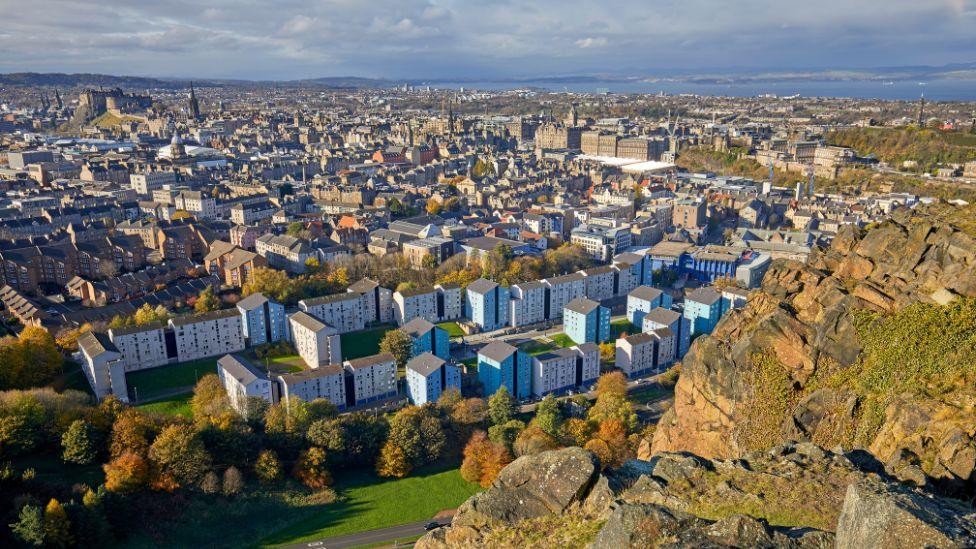City of Edinburgh Council declares housing emergency
- Published
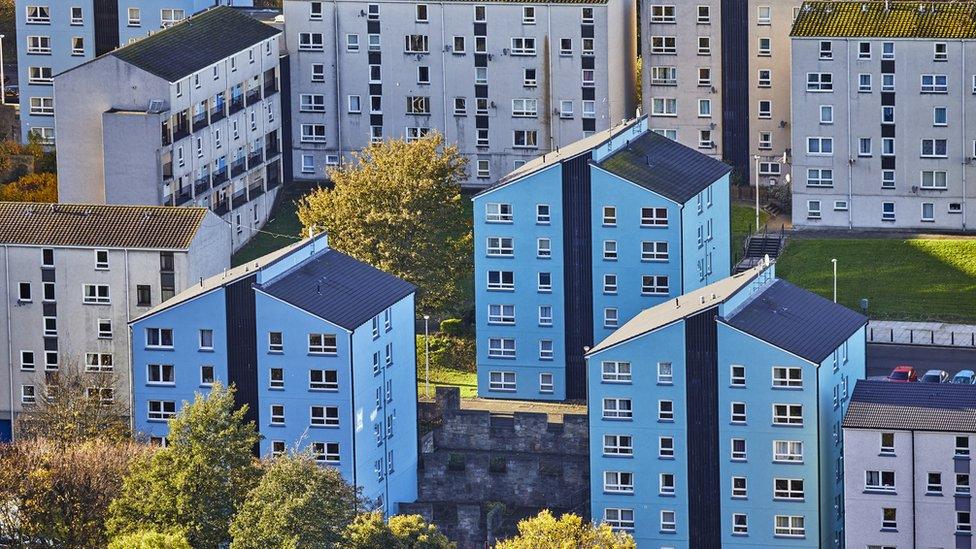
The City of Edinburgh Council has formally declared a housing emergency.
Councillors voted to back a motion by housing convener Jane Meagher highlighting a "crisis" in both the public and private sectors.
It cites the city's record homelessness figures along with a severe shortage of social rented homes and spiralling private rental costs.
The Scottish government is being urged to provide extra resources to help meet the "severe challenges".
Housing Minister Paul McLennan has said "tackling homelessness is a key priority" for the government.
Edinburgh is the first city council in Scotland to formally declare a housing emergency.
The only previous local authority to do so was Argyll and Bute in June., external
Council figures show approximately 5,000 households in the capital are in temporary accommodation, the highest number in Scotland.
The city also has the highest rental inflation rate in the UK at 13.7%.
Meanwhile, the council - which is run by a minority Labour administration - said about 200 bids are made for each social rented home that becomes available.

'I'm terrified to leave the house'
One mother is told she is being evicted as Edinburgh declares a housing emergency
Stacey Grieve and her six-year-old son are one of the five thousand households in Edinburgh stuck in temporary accommodation.
The 31-year-old has been registered as homeless for nine years and moved around several temporary properties, all owned by private landlords and rented back to the council.
She has had no permanent home since 2014 and was told two months ago that she was being evicted because the landlord wanted the property back.
While speaking to BBC Scotland News about the impact this uncertainty has had on her and her son's wellbeing, she was served with court summons informing her that she could be forced to leave the flat they have been living in for four years.
They now face the prospect of being evicted and moving into a hostel before Christmas.
She says she is "terrified" to even leave her house.
"If I go to the hospital, I don't know if I'm gonna come home to my house being boarded up," she says.

'Broken system'
The charity Shelter Scotland, which has been campaigning for a housing emergency to be declared, said the move would be "an important moment for the fight against housing injustice in Edinburgh".
The charity's director Alison Watson said: "Rents are out of control, record numbers of kids have nowhere to call home, more and more people are becoming homeless - Edinburgh is clearly in a housing emergency.
"The housing emergency is touching communities across Scotland, but a chronic lack of social homes, and the enormous number of properties used exclusively for short-term lets are just some of the factors which have made the situation especially acute in Edinburgh.
"By coming together to acknowledge that reality today, councillors now have licence to deliver the emergency response we need."
Mr McLennan said the Scottish government was making available £3.5bn over this parliamentary term to support delivery of 110,000 affordable homes by 2032, with 70% of those for social rent.
He added: "This includes investing at least £60m to help local authorities and registered social landlords acquire properties for use as high quality, affordable, permanent homes.
"Rapid Rehousing Transition Plans play an important role in Scotland's homelessness strategy and aim to reduce the need for temporary accommodation.
"We have provided local authorities with £52.5m between 2018-24 for their plans to support people into settled accommodation."
Homes for Scotland (HFS), the body which represents the majority of Scotland's housebuilders, said it was a "dreadful position" for the city to be in.
Chief Executive Jane Wood said: "Whilst we welcome the attention being drawn to the housing crisis by the convener of Edinburgh's Housing Committee, the council must look at the consequences of the emerging City Plan 2030, which seeks to deliver fewer affordable homes than the Council itself identifies are required.
"This works against the aim of delivering more homes and will actually result in the inequality and affordability issues that are already so prevalent being further exacerbated."


- Published9 October 2023
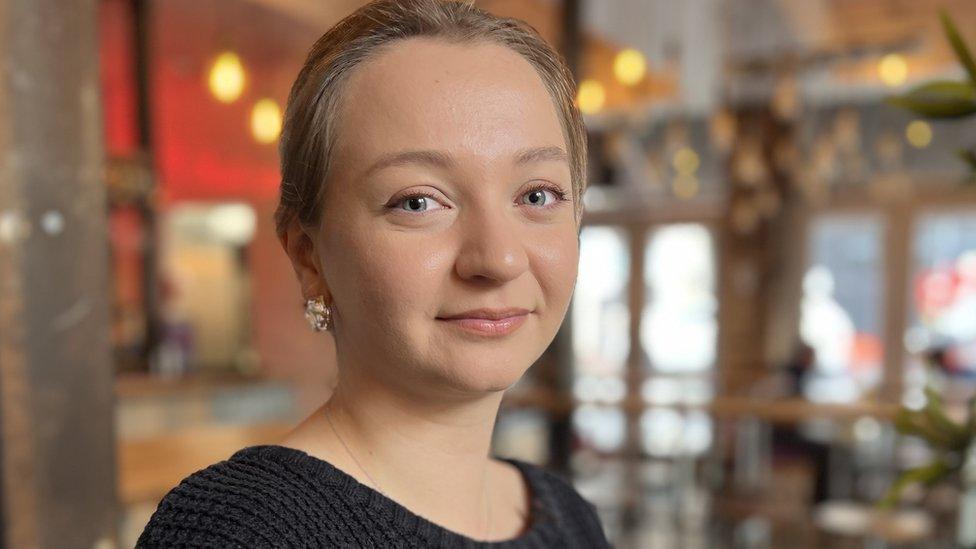
- Published11 October 2022
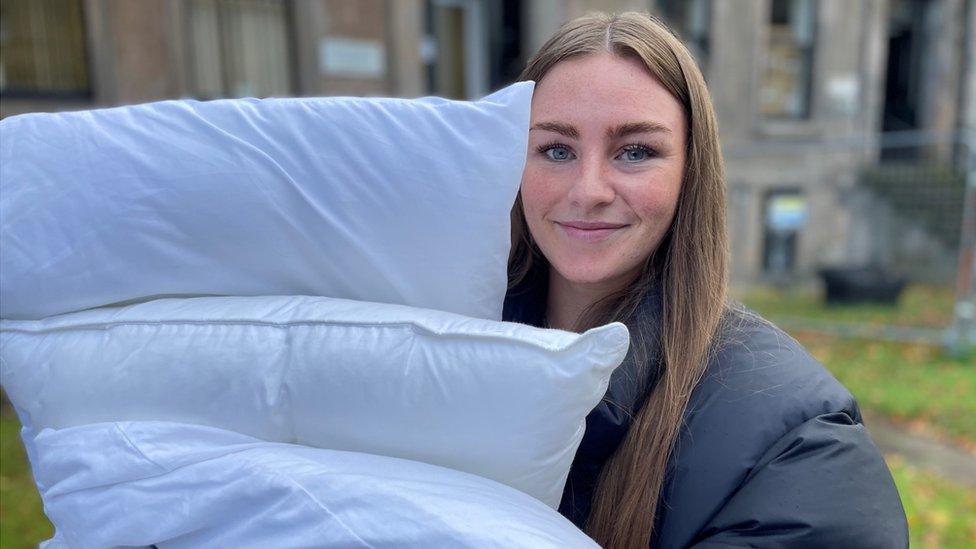
- Published4 October 2022
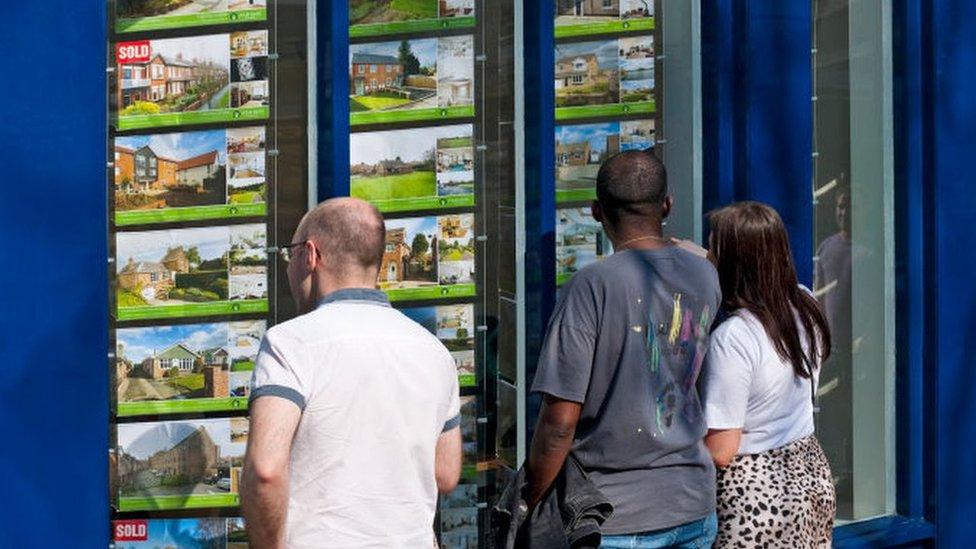
- Published4 August 2023
